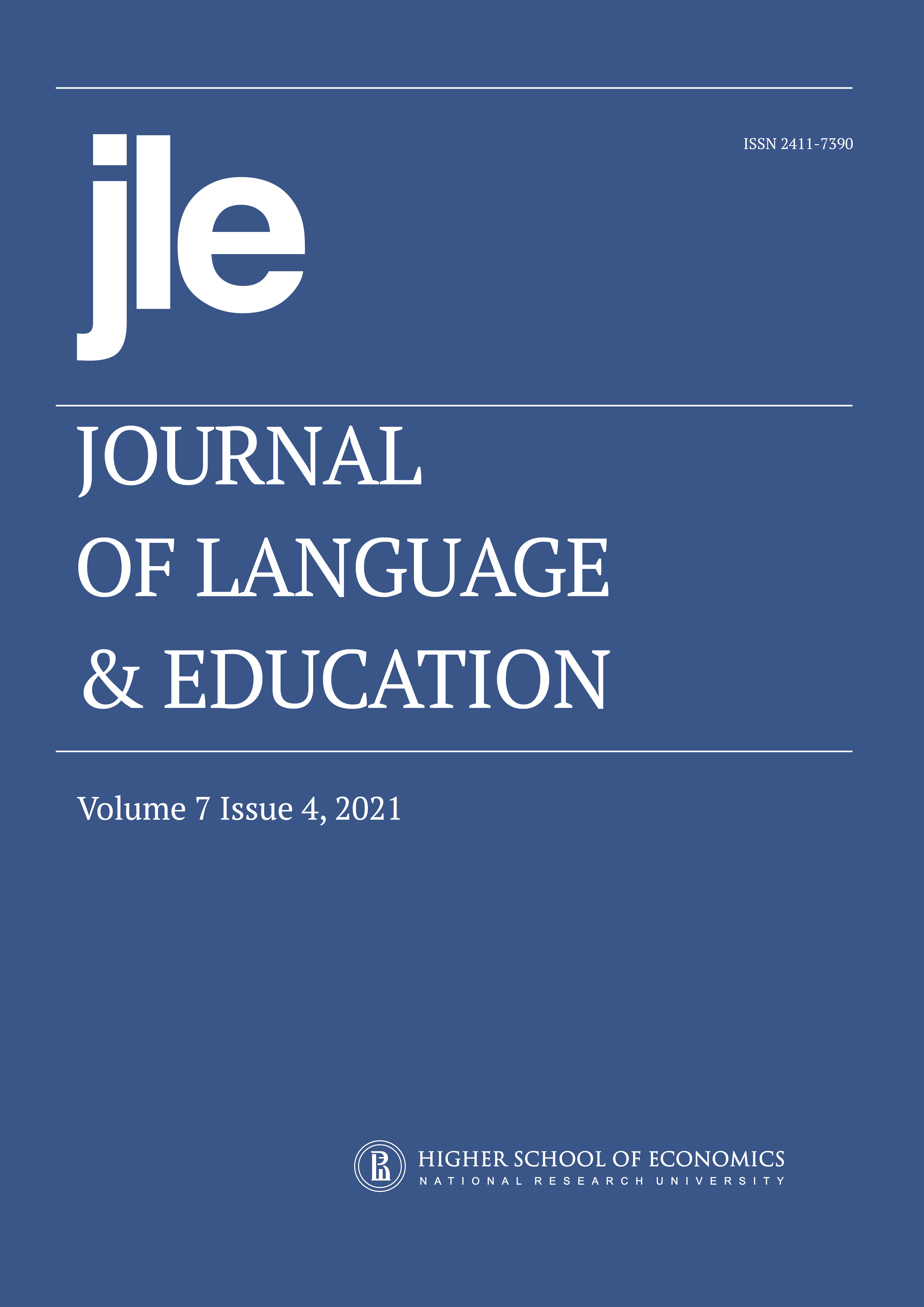Pandemic Language Teaching: Insights from Brazilian and International Teachers on the Pivot to Emergency Remote Instruction
Abstract
This article reflects on the experiences of language teachers from Brazil, Spain, France, Cyprus, Costa Rica and Taiwan during the pivot to emergency remote/online instruction during the 2020 pandemic. The research question motivating the study was what language teachers’ perceptions regarding online teaching during the pandemic were. Data were analyzed qualitatively, contrasting data from a questionnaire shared in an asynchronous online form with data from focus group interviews carried out via videoconferencing. The analysis of the questionnaire data showed that the vast majority of respondents used different digital technologies to teach online, both synchronously and asynchronously, but felt unprepared to work in this modality, mostly because of lack of institutional support and training. The analysis of the focus group interviews suggested that most teachers expressed concerns as to the limitations of online teaching for interaction and exams. In addition, some teachers displayed negative attitudes towards online teaching due to the lack of preparation and institutional support. This was aggravated by political implications of migrating to online education that could result in precariousness of the teacher profession. The positive aspects highlighted were the possibility of developing more self-directed and autonomous learning, as well as experimenting with different technologies and approaches. Overall, the analysis of the data suggests that, after the pandemic and with due preparation and support, some of the digital technologies and approaches experimented with will be incorporated into pedagogical practices in blended approaches, which represent a real trend and possibility for language teaching in the post-pandemic context.
Downloads
References
Assunção Flores, M., & Gago, M. (2020). Teacher education in times of Covid-19 pandemic in Portugal: National, institutional, and pedagogical responses. Journal of Education for Teaching, 46(4), 507-516. DOI: https://doi.org/10.1080/02607476.2020.1799709
Conrad, D. (2006). E-Learning and social change: An apparent contradiction. In. M. Beaudoin (Ed.), Perspectives on higher education in the digital age (pp. 21-33). Nova Science Publishers.
Crisol Moya, E., Molonia, T., & Caurcel Cara, M. J. (2020). Inclusive leadership and education quality: Adaptation and validation of the questionnaire Inclusive Leadership in Schools (LEI-Q) to the Italian context. Sustainability, 12(13), 1-17. DOI: https://doi.org/10.3390/su12135375
Fadini, K. A. (2016). Formação Inicial de Professores de Inglês do e para o Século XXI: Os papéis da língua inglesa e da tecnologia digital [Initial English Teacher Education in and for the XXI century: the role of English and digital technologies] [Unpublished master's dissertation]. Universidade Federal do Espírito Santo.
Guilar, J., & Loring, A. (2008). Dialogue and community in online learning: Lessons from Royal Roads University. Journal of Distance Education, 22(3), 19-40.
Henrique, T. (2020). Covid-19 e a internet (ou estou em isolamento social físico) [Covid-19 and the internet (or I am in social physical distancing)].Interfaces Científicas - Humanas e Sociais, 8(3), 173-176. DOI: https://doi.org/10.17564/2316-3801.2020v8n3p5-8
Hoenig, K., & Wenz, S. E. (2020). Education, health behavior, and working conditions during the pandemic: Evidence from a German sample. European Societies, 23(Suppl. 1), 275-288. DOI: https://doi.org/10.1080/14616696.2020.1824004
Keegan, D. (1996). Foundations of distance education (3rd ed.). Routledge.
Kessler, G., & Hubbard, P. (2017). Language teacher education and technology. In Carol A. Chapelle, & Shannon Sauro (Eds.), The handbook of technology and second language teaching and learning (pp. 278-292). John Wiley & Sons, Inc. DOI: https://doi.org/10.1002/9781118914069.ch19
Macedo, A. R. (2017). Abordagem Híbrida na Formação Inicial de Professores de Inglês: Integrando as Novas Tecnologias [Hybrid approach in Initial English language teaching education: Integrating the new technologies] [Unpublished doctoral dissertation].Universidade Federal do Espírito Santo.
Maican, M. A., & Cocorada, E. (2021). Online foreign language learning in higher education and its correlates during the Covid-19 pandemic. Sustainability, 13(2), 1-21. DOI: https://doi.org/10.3390/su13020781
Marinoni, G., Van't Land, H., & Jensen, T. (2020). The impact of Covid-19 on higher education around the world. IAU Global Survey Report.International Association of Universities.
Masterson, M. (2020). An exploration of the potential role of digital technologies for promoting learning in foreign language classrooms: Lessons for a pandemic.International Journal of Emerging Technologies in Learning, 15(14), 83-96. DOI: https://doi.org/10.3991/ijet.v15i14.13297
Mendes, A. R.; Finardi, K. R. (2018). Linguistic education under revision: Globalization and EFL teacher education in Brazil. Education and Linguistics Research, 4(1), 45 - 64. DOI: https://doi.org/10.5296/elr.v4i1.12831
Moore, K., & March, E. (2020). Socially connected during Covid-19: Online social connections mediate the relationship between loneliness and positive coping strategies. Research Square [Preprint]. DOI: https://doi.org/10.21203/rs.3.rs-35835/v1
Moorhouse, B. L. (2020). Adaptations to a face-to-face initial teacher education course forced online due to the Covid-19 pandemic. Journal of Education for Teaching, 1(3), 609-611. DOI: https://doi.org/10.1080/02607476.2020.1755205
Morin, E. (2000). Os sete saberes necessários à educação do future [The seven necessary knowledges for future education] (2nd ed.). Edgard de Assis Carvalho.
Newby, T., Stepich, D., Lehman, J., & Russell, J. (2000). Instructional technology for teaching and learning: Designing instruction, integrating computers, and using media (2nd ed.). Prentice-Hall.
Stuart, J., O'Donnell, K., O'Donnell, A., Scott, R. & Barber, B. (2021). online social connection as a buffer of health anxiety and isolation during Covid-19. Cyberpsychology, Behavior, and Social Networking, 24(8), 521-525. DOI: https://doi.org/10.1089/cyber.2020.0645
Copyright (c) 2021 National Research University Higher School of Economics

This work is licensed under a Creative Commons Attribution 4.0 International License.
Authors who publish with this journal agree to the Copyright Notice.



